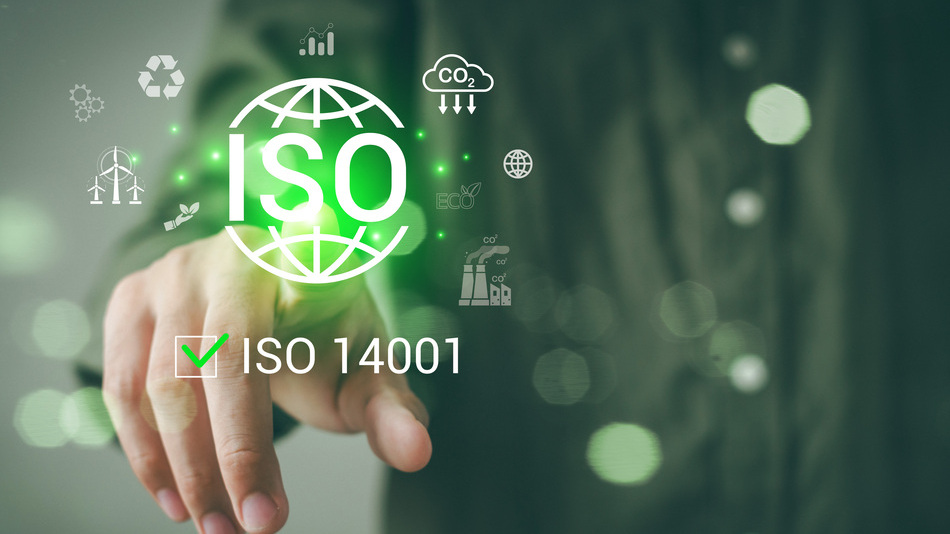In today’s rapidly evolving business landscape, sustainability is no longer just a buzzword—it’s a vital component of long-term success. Organizations worldwide are recognizing the importance of implementing environmentally responsible practices to meet customer expectations, comply with regulations, and enhance overall operational efficiency. One of the most effective ways to achieve these goals is through ISO 14001 2015 certification. This globally recognized standard provides a framework for establishing an effective Environmental Management System (EMS) that promotes sustainability and continuous improvement.
In this blog, we will explore why ISO 14001:2015 certification is crucial for sustainable business practices and how it can benefit your organization.
Understanding ISO 14001:2015 Certification
ISO 14001:2015 certification is an internationally recognized standard for Environmental Management Systems (EMS). It provides organizations with the tools to identify, manage, and mitigate the environmental impacts of their operations. The standard emphasizes a proactive approach to environmental management, focusing on continuous improvement, legal compliance, and sustainable resource use.
Key components of ISO 14001:2015 include:
- Identifying environmental aspects and impacts
- Setting measurable environmental objectives
- Ensuring legal and regulatory compliance
- Promoting continual improvement through regular audits and reviews
Achieving this certification demonstrates an organization’s commitment to environmental responsibility and sustainable business practices.
Benefits of ISO 14001:2015 Certification for Sustainable Business Practices
1. Enhanced Environmental Performance
One of the primary benefits of ISO 14001:2015 certification is improved environmental performance. By implementing an effective EMS, organizations can:
- Reduce waste generation and energy consumption
- Minimize resource usage and operational costs
- Lower greenhouse gas emissions and pollution levels
- Promote sustainable use of natural resources
These improvements not only benefit the environment but also lead to significant cost savings and operational efficiencies.
2. Regulatory Compliance and Risk Management
Staying compliant with environmental laws and regulations is critical for any business. ISO 14001:2015 certification helps organizations identify applicable legal requirements and establish processes to meet them consistently. This proactive approach to compliance reduces the risk of fines, legal actions, and reputational damage.
Additionally, the certification encourages organizations to assess environmental risks and implement measures to mitigate potential impacts, further enhancing overall risk management.
3. Improved Reputation and Stakeholder Trust
Consumers, investors, and other stakeholders are increasingly prioritizing sustainability when choosing which companies to support. Obtaining ISO 14001:2015 certification signals a strong commitment to environmental responsibility, which can:
- Strengthen brand reputation and credibility
- Attract environmentally conscious customers and partners
- Improve relationships with regulators and local communities
- Enhance investor confidence and access to capital
A positive reputation for sustainability can give your organization a competitive edge in the marketplace.
4. Competitive Advantage and Market Access
Many industries now require suppliers and partners to demonstrate their commitment to environmental sustainability. ISO 14001 2015 certification often serves as a prerequisite for participating in certain markets or bidding on government and corporate contracts.
By achieving this certification, your organization can:
- Access new business opportunities and global markets
- Meet customer and regulatory requirements more effectively
- Differentiate itself from competitors lacking certification
5. Employee Engagement and Organizational Culture
Sustainability initiatives can foster a sense of pride and purpose among employees. ISO 14001:2015 certification involves engaging staff at all levels, promoting environmental awareness, and encouraging environmentally responsible behaviors.
Benefits of increased employee engagement include:
- Higher productivity and job satisfaction
- Improved teamwork and communication
- Enhanced innovation in sustainability practices
Creating a culture of environmental responsibility can lead to long-term improvements in organizational performance.
6. Cost Savings Through Efficiency Improvements
Implementing the processes required for ISO 14001:2015 certification often leads to significant cost savings. By identifying inefficiencies and reducing resource consumption, organizations can:
- Lower energy and water bills
- Decrease waste disposal costs
- Optimize supply chain operations
- Improve overall operational efficiency
These financial benefits make the investment in certification highly worthwhile.
7. Commitment to Continuous Improvement
A core principle of ISO 14001:2015 certification is continual improvement. Organizations are encouraged to regularly review and refine their EMS to achieve better environmental outcomes. This ongoing commitment to improvement ensures that sustainability efforts remain effective, relevant, and aligned with evolving regulations and stakeholder expectations.
Continual improvement also enables organizations to adapt to new technologies and market trends, further enhancing long-term sustainability.
How to Get Started with ISO 14001:2015 Certification
Achieving ISO 14001:2015 certification involves several key steps:
- Conduct a gap analysis to assess current environmental management practices.
- Develop an Environmental Management System (EMS) tailored to your organization’s needs.
- Train employees to ensure awareness and engagement in sustainability initiatives.
- Implement and monitor the EMS to track progress and identify areas for improvement.
- Conduct internal audits and management reviews to evaluate EMS effectiveness.
- Select a reputable certification body to perform the external certification audit.
By following these steps, your organization can successfully obtain ISO 14001:2015 certification and reap the numerous benefits associated with sustainable business practices.
Conclusion
Sustainability is no longer optional—it’s a critical aspect of modern business strategy. ISO 14001:2015 certification provides a proven framework for organizations to improve their environmental performance, comply with regulations, and meet stakeholder expectations. The benefits of certification extend beyond environmental impact, offering cost savings, enhanced reputation, competitive advantage, and increased employee engagement.
Investing in ISO 14001:2015 certification is not just about meeting standards; it’s about building a resilient, responsible, and future-ready organization. Ready to take the next step toward sustainability? Contact our experts today to learn how we can help you achieve your certification goals.








